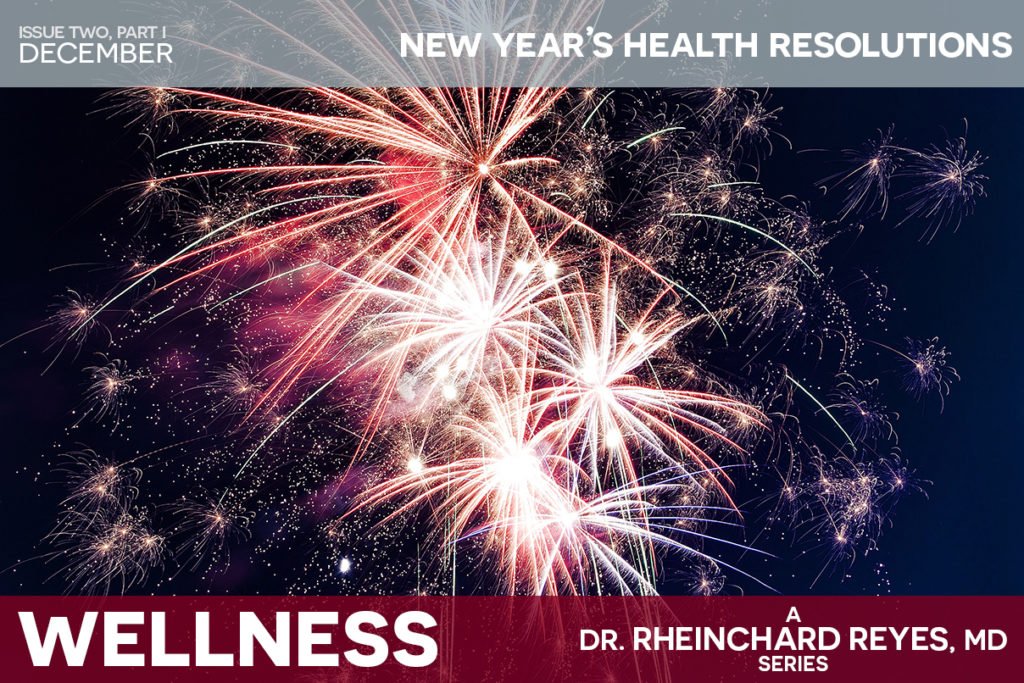New Year’s often takes us on a path of introspection. We assess how the year went. Maybe more importantly, it gives us an insight to where we want the upcoming year to lead us. New Year’s Eve resolutions are as varied as the human race, but health always makes its way to the top end of the scoreboard, as it should. In this two-part blog entry, take a few minutes to review some of the most popular and rewarding New Year’s Eve health resolutions, as well as a handful of useful tips to make them last and work for you.
Categorizing Resolutions
Health resolutions are also diverse, but they do tend to fall into one of these categories.
- Sleep
- Exercise
- Weight Loss & Nutrition
- Mindfulness & Time for Yourself
- Stress Relief
- Quit Smoking & Reduce Caffeine Intake
Sleep resolutions are not only about getting more of it, but also making it top-quality. Redesigning bedrooms and optimizing bed position is a favorite. Unplugging is probably the soundest and most immediate remedy to sleep deprivation, thus improving sleep soundness. Why not take the TV out of there and generally turn off any electronic device, such as phones or music players? Blue light from electronics is detrimental. This will immediately improve your sleep patterns and quality. Napping has been making a big comeback, especially 10-to-15-minute power naps, which several studies have recommended as a way to restore our energy just after lunch time (1-3 pm). If you have some investment power, upgrading mattress and pillows may follow. Or renovating sleepwear. But how about these less obvious choices which will surely make a positive dent: getting tested for sleep apnea or buying a humidifier?
Exercise is an obvious choice. But does it mean more of what you are already invested in, shaking it up and coming up with alternating routines, or starting from scratch? And if so, what to do? One way to go is definitely trying to fit regular exercising into your workday. Daytime exercise increases quality —deep slow-wave sleep— and quantity of sleep, alertness, resets the body clock, and reduces stress and anxiety. If you are looking to shake it up a bit, many athletes and fitness pros recommend alternating high-powered sessions with restorative workouts. Increasing stretching and recovery time, or fitting in yoga —any activity that winds you down, for that matter— might be good solutions.
Weight loss and nutrition is a favorite for all resolution-makers out there. It ties in with a bunch of the other categories. Top experts have always recommended exercising regularly —4-5 times a week— for 30 minutes. And, of course, curbing stress factors, such as getting more and better sleep by setting a routine or schedule. Upping water intake every day, within limits (half to one full gallon), is great because liquid intake helps to lose weight. In the nutrition camp, it probably means less resorting to fast and junk food. Eat healthy and watch the caloric intake, easing fruits and vegetables to make a balanced diet. For many lately, maybe for you too, this has meant learning how to cook. According to a study in the UK, people who eat five or more home-cooked meals are 28 percent less likely to be overweight and 24 percent less likely to have excess body fat when compared with eating in less than three meals a week.
Mindfulness is a fresh and rather new word in our dictionary, but really it is about balancing out your schedule and devoting more time for self. Resolving to live more in the present and to put special care into everything we do and say is a great way to start improving. Let positivity in language and ideas be your guiding light. When you commit, do it for real. Meditation and deep breathing might also help, if it is only a few minutes a day. Carve out more personal time and invest in things that interest you, stuff that has no link to your corporate or professional to-do’s. Establish a sleep ritual that will allow you to decompress and restore your energy correctly. Or unleash your kindness, your beautiful soul, and establish a ‘pay it forward’ policy.
Stress relief has to be one of the most important resolutions. It is almost a mandate in our modern, mostly urban societies of tight schedules, jam-packed with speedy commutes and fast retribution. Anxiety triggers cortisol and adrenaline, the famous ‘fight or flight’ hormones. To this end, enhance your magnesium intake, which facilitates the production of melatonin, the sleep hormone. This is not that hard to do if you mix it in your water bottle. Look for any activity that will insert cool down stints into your tight workday. Listening to relaxing music might be an option, as will 5-minute meditation episodes. Easing stress might also mean securing a zone or room, both at home and at work, where noise is absent, light can be reduced, and you can have some time to collect your thoughts and unwind, even power nap.
Quitting smoking and staying vigilant of the many sources of caffeine will most certainly have a phenomenal impact on your general health. Coronary, cancer and lung health risks will depreciate substantially. If willpower alone does not work, do resort to nicotine replacement, or, even better, get professional advice. Exercising always helps with the anxiety, as does surrounding yourself with people who will support your resolution. Ban facilitators.


